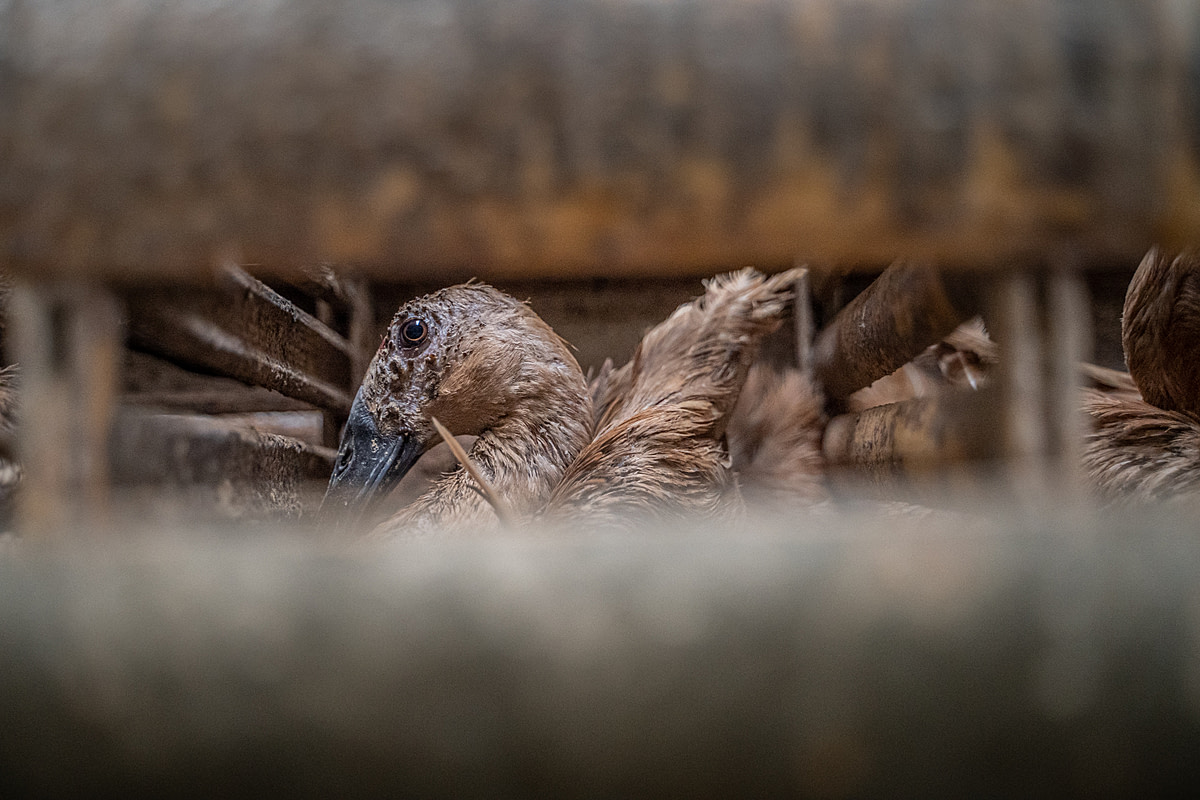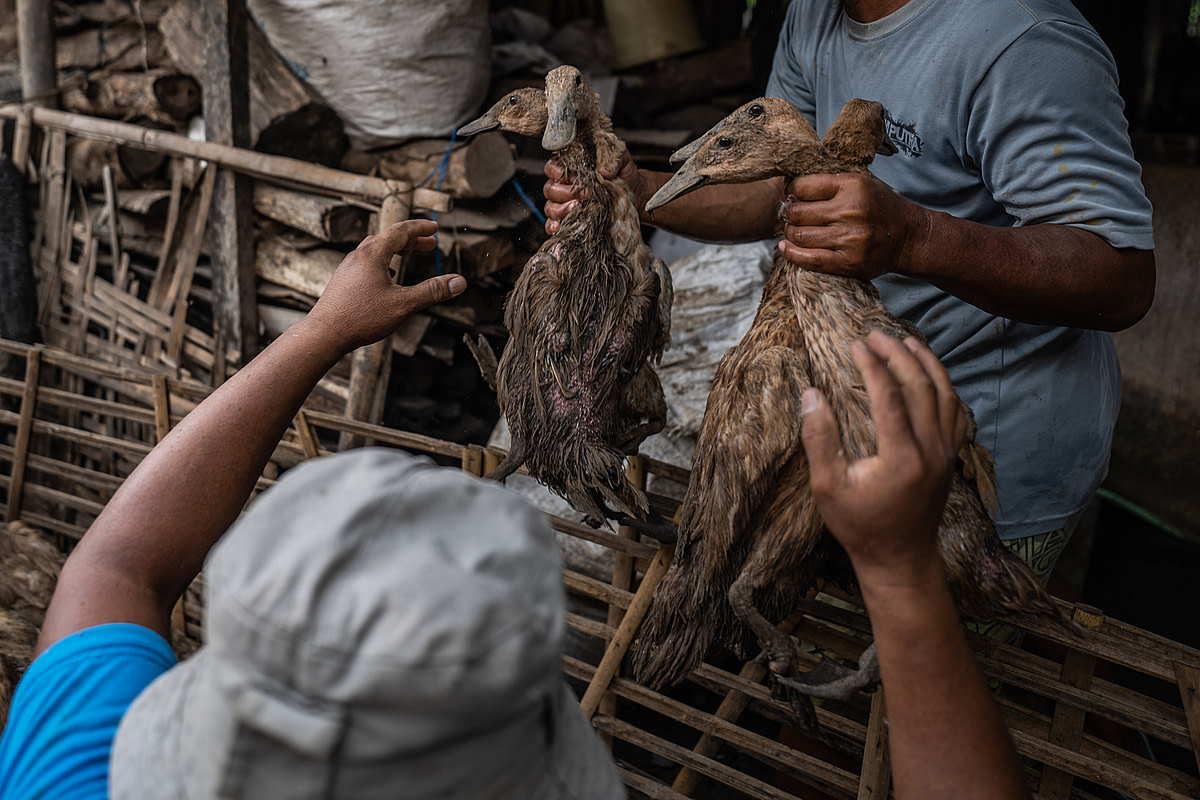A lone duck looks through the slats of the tiny cage she is confined to at a duck egg farm. Indonesia, 2021.
Haig / Act for Farmed Animals / We Animals
[Content warning: Contains confronting images and/or video footage]
We Animals and Act for Farmed Animals have investigated brutal conditions on duck egg farms in Indonesia, a growing industry of more than 60 million birds. Our photos and video document ducks living and dying in extreme conditions with practically no oversight or welfare considerations.
Photographer and Videographer: Haig
In collaboration with: Act for Farmed Animals
- confined in tiny cages, unable to walk or express their natural aquatic behavior, causing heat stress, frustration and unhygienic problems;
- getting trampled by other ducks and being roughly handled by workers;
- living in squalor exacerbated by dead bodies, excrement and the inability to express natural grooming behaviors, creating an unbearable stench;
- without veterinary care. At least one farmer gave sick ducks amoxicillin and paracetamol meant for humans and then returned them to production;
- exhibiting skin problems and open wounds, missing feathers, disfigured and bloodied.
“Witnessing what other animals go through in these farms and slaughterhouses was heartbreaking. Some have been in battery cages for a year, others watched each other getting slaughtered and dismembered. I cannot imagine how in this day and age this is allowed. I hope this investigation brings important change that will affect the lives of hundreds of thousands of animals who wish to experience freedom and the end of their suffering.” — Haig, Animal Photojournalist
Ducks can live up to 12 years, but are killed at about 18 months when egg productivity declines, or at two months for ducks killed to eat.
Ducks are grasped by their necks by workers and taken from the holding pens to the kill floor of a small slaughterhouse. Indonesia, 2021.
Haig / Act for Farmed Animals / We Animals
At one point we focused on one duck who, after their throat was slit, remained alive as a worker poured boiling water on them. They attempted to escape until the worker confined them in a bucket, where they eventually died.
A fully conscious duck with a slit throat looks into the camera as she bleeds to death in a dirty bucket at an Indonesian slaughterhouse. Indonesia, 2021.
Haig / Act for Farmed Animals / We Animals
Aerial footage of the large sheds that house thousands of ducks at an Indonesian duck farm. Indonesia, 2021.
Haig / Act for Farmed Animals / We Animals
“It’s a sad reality that while the consumption of duck eggs and meat is on the rise in Indonesia, many Indonesians still think these animals are living good lives, roaming freely in rice fields. But the sad truth is that they are being confined and forced to live under very unnatural conditions that cause them a lot of suffering.” — Angelina Pane, Founder of Animal Friends Jogja, a member of Act for Farmed Animals
Act for Farmed Animals is petitioning the Indonesia government to enact welfare legislation immediately. Watch their campaign video and take action here.


















For more information on this investigation, read our latest Press Release.
Photographer and Videographer: Haig
In collaboration with: Act for Farmed Animals
To view more images and video from this collection, visit our Indonesian Duck Farming gallery.




